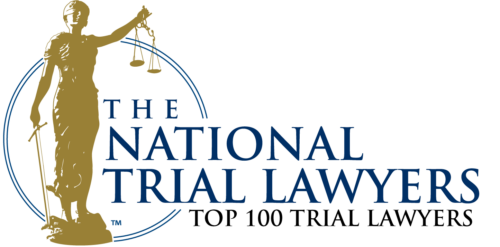Medical malpractice is a highly technical area where legal mistakes can sink an otherwise viable claim. In general, if you have been injured by an act or failure to act by a doctor, nurse or other medical professional you may have a claim for medical malpractice. Medical malpractice claims form a broad umbrella of potential grounds for legal claims including:
- Failure to diagnose lawsuit or missed diagnosis
- Failure to adequately screen a patient
- Misdiagnosis of a medical condition
- Prescribing an inappropriate medication or drug
- Prescribing an excessive or insufficient dosage of a medication or drug
- Injuries due to medical devices like a pacemaker or hip implant
- Operated on wrong body part
- Child birth injuries including Erb’s Palsy and Cerebral Palsy
- Anesthesia errors
- Lack of informed consent
- Re-use of single-use medial device
However, a successful medical malpractice claims almost always requires the testimony of a qualified medical professional to act as an expert witness. Depending on the facts, circumstances and medical issues surrounding the alleged malpractice, a medical expert qualified for one matter may not qualify for another action.
Therefore, working with an attorney who can identify the relevant medical issues in the matter is extremely important. Just as important is that your attorney is able to identify & select a medical expert who is likely to withstand tough questioning under cross examination based on understanding and anticipation of how opposing counsel may attempt to impeach the credibility of the witness or disqualify them from providing testimony altogether. If that medical witness is being relied on, disqualification or skepticism regarding the testimony can be fatal to a case.

What is Medical Malpractice?
Prior to discussing, the role a medical expert can play in a medical malpractice case, it is helpful to first define what medical malpractice is, and what it is not. At the most basic level, medical malpractice is not merely a poor medical outcome or result. In fact, in many cases a doctor can do everything right and yet the patient will not improve or respond to the treatment. Thus, while a bad outcome or injury is part of a viable medical malpractice claim, a successful claim requires something more. Under Pennsylvania law, that something more is medical negligence.
Medical negligence occurs when a medical professional deviates from the accepted standard of medical care. This standard of care is not necessarily consistently defined. That is, the standard of accepted and appropriate care can differ due to factors including the geographic area, the facilities available, the patient’s medical history, and a variety of other factors. In addition, the medical negligence must be the direct cause of the patient’s injuries.
Expert Testimony Is Generally Necessary For An Injured Plaintiff To Prevail
As per Rule 1042.3 and at the initial stages of a lawsuit, an injured individual who is suing a doctor, nurse or other licensed professional, must file something known as a certificate of merit. This filing must occur within 60 days of the complaint and it must contain a written statement by an appropriately licensed professional stating that there is a reasonable probability that the care fell below acceptable standards. Furthermore, the care, skill or knowledge exhibited by the medical professional was the cause of the injury. In some actions, the plaintiff or plaintiff’s attorney may certify that an expert is not required to prove the validity of claim. However such a certification is binding and, if circumstances change, the plaintiff will not be permitted to use an expert. Therefore, the guidance of an experienced medical malpractice attorney can be instrumental in preventing legal missteps that could cause irreparable harm to a claim.

Furthermore in order to prevail at trial a plaintiff must be able to prove four elements:
- A duty existed that was owed by the medical professional to the patient.
- The duty was breached due to a deviation from the accepted standard of care.
- The breach of the duty was a substantial factor in the injury or the cause of the injury.
- The plaintiff suffered a harm or injury.
The plaintiff must show that there is a “reasonable degree of medical certainty” that the doctor did not follow an acceptable standard of care with this deviation being the proximate cause of injury. Mitzelfelt v. Kamrin, 584 A.2d 888, 891 (Pa. 1990).
However, situations exist where an expert would not be necessary. Typically these are scenarios where the matter is simple and straightforward, where a lack of skill is obvious, or where care was significantly lacking. Essentially, these are typically egregious cases where even a layperson’s experience and knowledge would be sufficient to make a judgment. However, proceeding without an expert witness is risky and should only occur after careful consideration by an experienced attorney.
What Standards Must a Medical Expert Satisfy?
As part of MCARE, effective May 19, 2002, enhanced standards to qualify medical expert witnesses went into effect. Under § 1303.512, the default rule makes no individual competent to offer expert medical testimony unless they have some combination of special characteristics that qualifies them. In general, a person may become qualified due to some combination of training, education and experience. If the witness is to testify regarding the standard of care they must meet the following three qualifications:
- Substantial familiarity with the applicable standard of care
- Practice in the same specialty or a specialty with a substantially similar standard of care
- If board certified, he or she is certified by the same board or a similar board
However, dependent on the circumstances, the same specialty and the board certification requirements can be waived by the court. Typically this is only done if the court is satisfied that the witness’ experience, education and training is in a related field and sufficient.
Furthermore, for any individual testifying regarding the standard of care, risks and alternatives, causation and the nature and extent of the injury must also hold an unrestricted US-based medical license and to have been engaged in teaching or clinical practice within the past 5 years. However, these two requirements may be waived by the court.

As to the importance of selecting an appropriate and qualified expert medical witness, consider Kling v. Waciuma. In this matter the Defendant challenged the qualifications of the plaintiff’s medical expert, Dr. Michael Golding. In the 2012 case, testimony provided by the doctor revealed that he last performed surgery in 1986 and that his ceased full-time teaching duties in 1998. The doctor was able to cite a handful of lectures he presented each year from 2007 through 2012. Furthermore, although the doctor would see roughly 20 patients a year for second opinions or consultations, he no longer provided treatment and has not done so for the last 20 years.
The court found that the doctor was not actively engaged in clinical practice. Furthermore it found that his teaching activities were minimal and did not satisfy Pennsylvania’s standard. The doctor was prohibited from testifying as an expert witness against the defendant doctor. If doctor Golding was the plaintiff’s only medical witness or the only witness that could provide medical testimony regarding an essential element of medical malpractice, the plaintiff’s case would be in an impossible position. Without the expert witness there would simply be no way to prove the elements of the case and thus the plaintiff would, almost assuredly, lose at trial.
Rely on our Medical Malpractice Experience
Preparation for a trial involves numerous difficult and time-consuming considerations. However, these elements and considerations must be accounted for because failure to do so can result in extremely harsh consequences for the plaintiff. If you have suffered a catastrophic injury or the death of a loved one due to a medical mistake contact the experienced medical malpractice attorneys of The Reiff Law Firm. We have more than 30 years of legal experience. To schedule a free, confidential consultation call (215) 709-6940 today.
Related Posts
- New Jersey’s Most Dangerous Amusement Parks
- Can You Sue for Depression After a Car Accident in Pennsylvania?
- Common Types of Premises Liability Claims in Philadelphia
- Strange But True: Medical Malpractice Cases from Surgical Tools Left Behind
- How to Get a Police Report for a Car Accident in Allentown, PA















